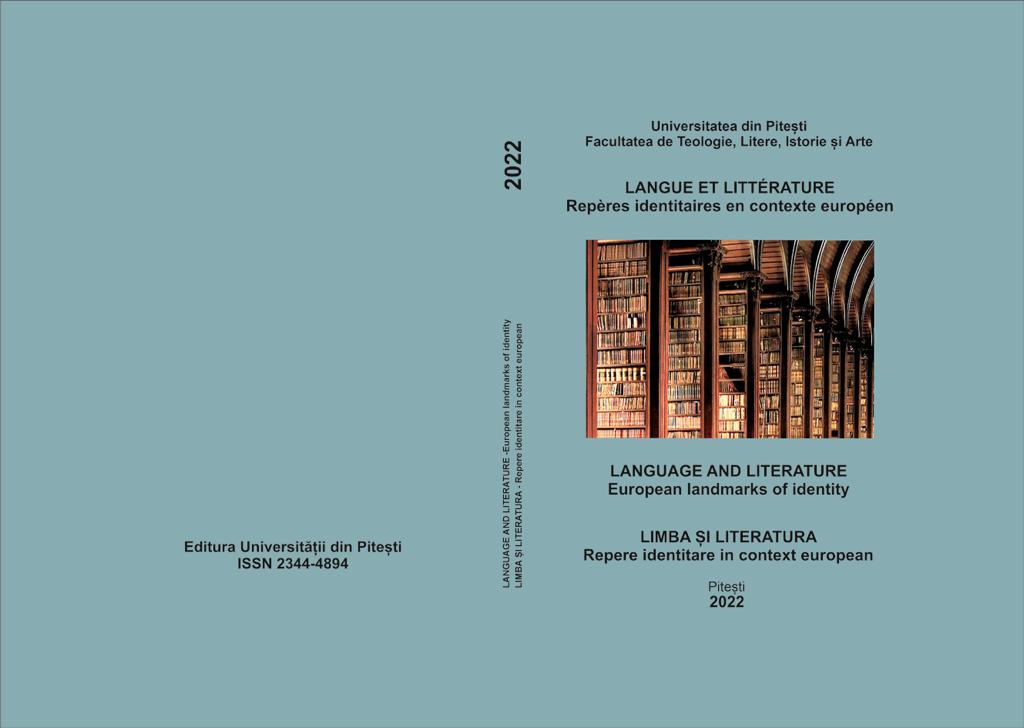UMORISMO COME “SENTIMENTO DEL CONTRARIO” IN LUIGI PIRANDELLO: ANALISI LINGUISTICA
HUMOR AS A “FEELING OF THE OPPOSITE” IN LUIGI PIRANDELLO: LINGUISTIC ANALYSIS
Author(s): Nabila KADIRSubject(s): Theory of Literature, Italian literature
Published by: Editura Universităţii din Piteşti
Keywords: humor; feeling of the contrary; comic; humorous attitude;
Summary/Abstract: Pirandello was one of the most prolific writers, writing not only novels, but also numerous plays and even at the beginning of his training he published some poetic collections. His literary work is not divided into various creative periods, but he simultaneously writes verse, novels, novels, critical essays and theater. In his essay on humor Pirandello distinguishes the warning of the contrary that causes rice in the face of a comic-paradoxical situation from the feeling of the contrary that leads to metacognitive reflection in the same situation. A new conception of feeling that calls into question our instinct for common action in society. But this humorous attitude fully reflects a cultural background that goes back several centuries of literature history. Pirandello then tackles the problem of the alleged national difference between humorous expressions of different countries, starting from a quote by Thackeray and focusing on the work of Aristofane Per Pirandello, Aristofane is humorous in a broad sense, that is, comic or satirical, because it is never held between the yes and the no and has a moral purpose that Pirandello opposes here to the world of pure fantasy and that then, contradicting Lipps, will exclude from humor. Socrates, on the other hand, is a true humorist because he possesses the feeling of the contrary that the author is dealing with here for the first time. One of the greatest humorists without knowing it was Copernico, Pirandello tells us, and this is because the humorist captures the contradictions and lays bare the illusion that every individual feels at the center of reality. In this sense, the self-deprecation for a sapiens leader is an excellent vaccination against the risks of pathological narcissism that can result from holding positions of power. In the second part of the essay, Pirandello proposes his definition of humor: In the conception of every humorous work, reflection does not hide, it does not remain invisible. Almost a mirror in which the feeling is re-aimed, is placed before him as a judge; however, from this analysis, from this decomposition, another feeling arises and spirals: what could be called and which I in fact call, the feeling of the contrary feeling of the contrary is committed to drawing from the situations a universal sense is therefore not the warning of the contrary: this is the comic, that is the humorous.
Journal: LIMBA ȘI LITERATURA – REPERE IDENTITARE ÎN CONTEXT EUROPEAN
- Issue Year: 2022
- Issue No: 31
- Page Range: 183-188
- Page Count: 6
- Language: Italian

